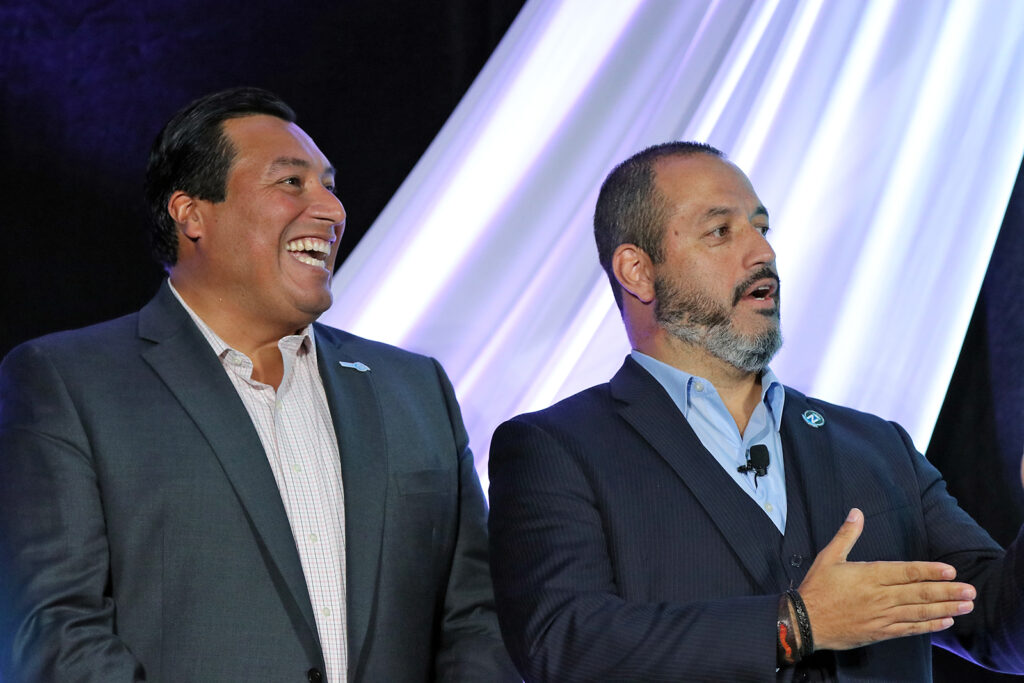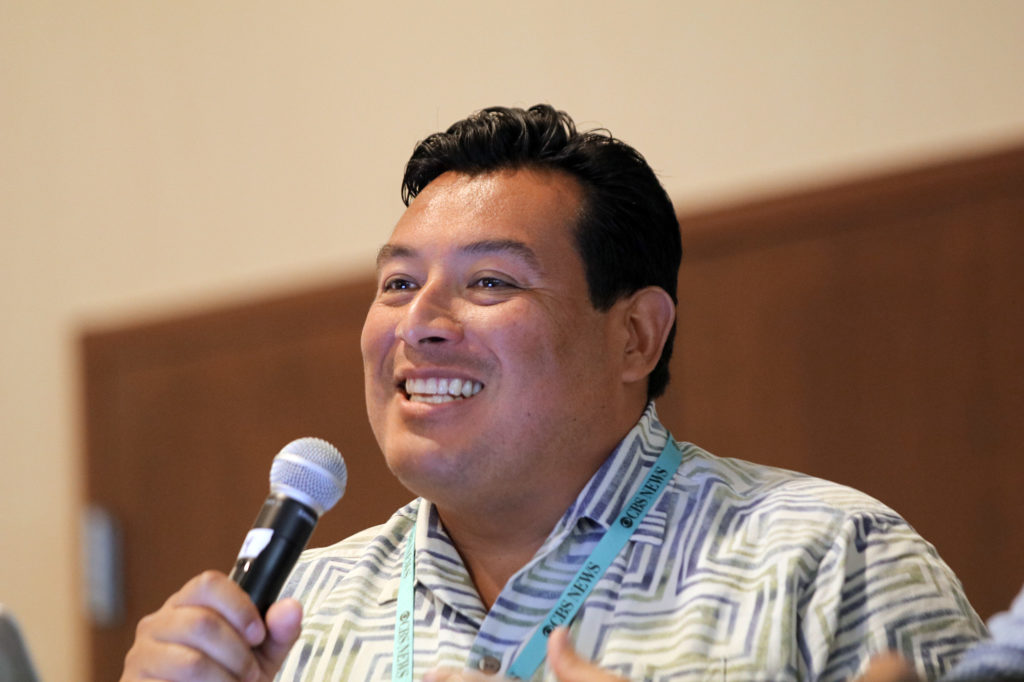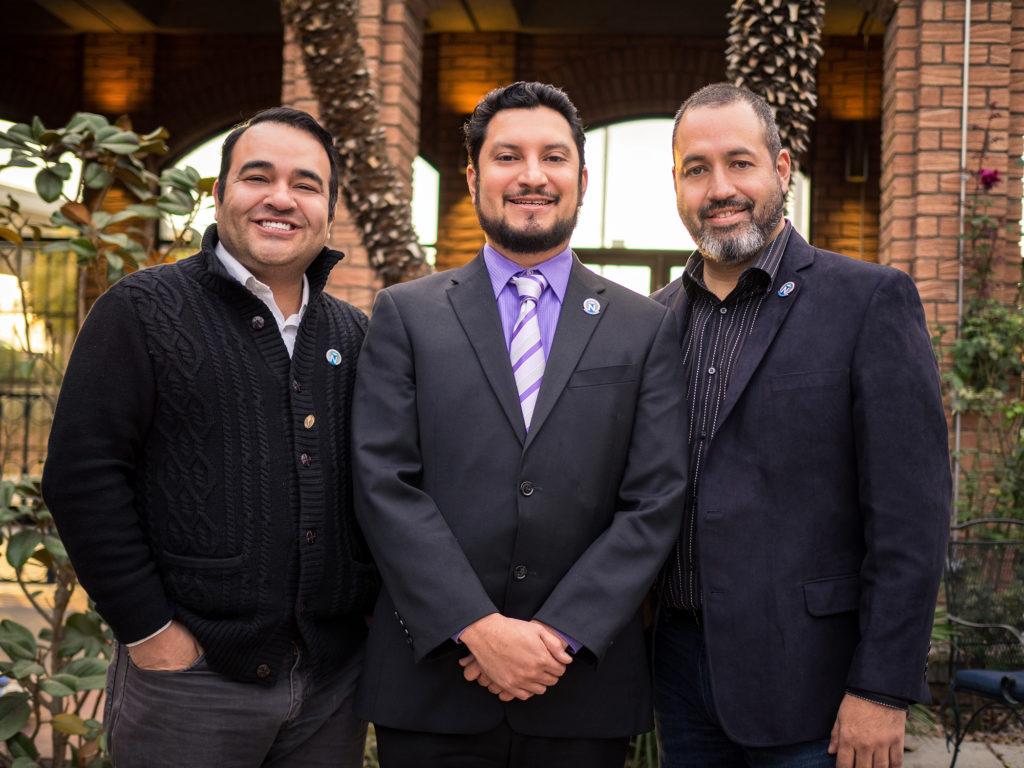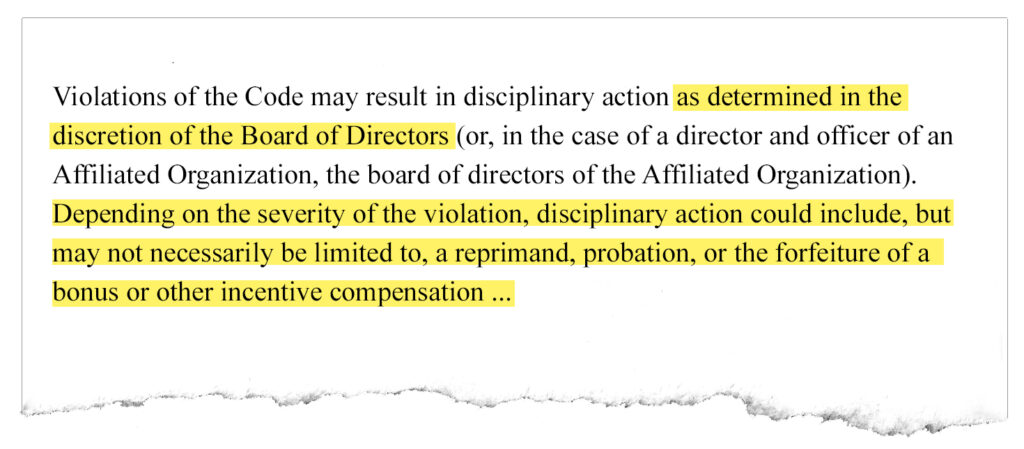Celebrated and criticized, Alberto Mendoza leaves top NAHJ job after six years at the helm

After six years leading the National Association of Hispanic Journalists, Alberto Mendoza quit his job as executive director in April, ending a tenure punctuated by record-breaking growth and a string of controversies.
Among his contributions to NAHJ, the country’s largest organization of Latino journalists, Mendoza has been credited for helping launch a Verizon-sponsored fellowship, a multimedia platform for freelancers called palabra. and a journalism guidebook on the culturally appropriate terminology to use when reporting about diverse communities.
But in the wake of his departure, questions remain about his role in a string of controversies, including NAHJ’s handling of an investigation into sexual misconduct among its members and the organization’s decision to cancel the 2020 board elections, which led to the most contested race in recent memory.
Three attempts to reach Mendoza via email for this story were unsuccessful.
The Latino Reporter contacted all 17 members of NAHJ’s board via email to ask about Mendoza’s tenure. NAHJ President Nora López and seven board members responded. Five of the members directed questions to López. Those who spoke with the Latino Reporter said they were satisfied with his work.
Mendoza’s contributions

Some board members credited Mendoza with strengthening partnerships between the organization and its sponsors, and keeping NAHJ “humming.”
“He left the organization on good terms and in great financial standing,” Blanca Rios, the board’s national secretary, wrote in an email. “This made it easy for the board to smoothly transition to an interim Executive Director.”
Mendoza joined the organization in 2015, under the leadership of former NAHJ President Mekahlo Medina.
“He comes with decades of non-profit experience, exceptional organizational skills, sponsorship building and a history of elevating organizations to the next level,” Medina at the time said in a statement to Media Moves, a website that tracks Latinos in the media industry.
When the Latino Reporter asked Medina to elaborate on his opinion of Mendoza this week, he declined.
Hugo Balta, a former NAHJ president who worked closely with Mendoza during his second term at the helm of the organization, said that before he met Mendoza during the interview phase of the hiring process, he had some reservations.
“At that time, he had not had any experience in working with a journalism organization like NAHJ,” said Balta, who recalled liking his approachability, high-energy and “memorable” personality. “He completely proved my little hesitancy wrong because of just everything he was able to accomplish.”
Balta said Mendoza’s contributions to NAHJ were plentiful. In addition to helping launch the Verizon Multimedia Journalism Fellowship, palabra. and the Cultural Competence Handbook, he also helped establish a training program for student journalists known as the NAHJ Student Bootcamp.

During Mendoza’s tenure, the organization shattered its membership record, reaching 3,031 members in 2020. According to NAHJ records, the previous all-time high was just above 2,500 members.
Eraldo “Dino” Chiecchi, a former NAHJ president and a journalism professor at the University of Texas at El Paso, said he will never forget when Mendoza visited El Paso to support NAHJ members after the deadly shooting of 23 people at a local Walmart.
“The community as a whole was grieving and he brought people down here to meet with journalists at one of the TV stations and to meet with our students at the border and talk about how we’re doing,” said Chiecchi. “I’ll always remember that.”
Chiecchi said the last person to have the job as long as Mendoza was Frank Newton, NAHJ’s first executive director who spent a little more than a decade running the organization in the 1990s.
“Five years is a really long time in the nonprofit world,” said Arelis Hernández, NAHJ’s vice president for print. “It’s not easy to lead an organization of journalists.”
When Mendoza and NAHJ announced his departure in the spring, some who worked closely with him believed it was simply his time to move on to a new opportunity.
Misconduct allegations
One board member who spoke to the Latino Reporter on condition of anonymity because they were not cleared to discuss the specifics of Mendoza’s tenure, said “several allegations of misconduct” were made against Mendoza in his final months with the organization. The allegations were brought to the board’s attention by a former NAHJ president along with a number of “prominent members” who asked the board to determine if the allegations “had any merit.”
The board reviewed the allegations and dismissed most of them. A few “with merit” were “dealt with in a way the board felt appropriate and eliminated ethical dilemmas,” the board member said.
The organization’s code of conduct gives the board wide discretion on how to reprimand an executive director for misconduct.

“There were, you know, issues that came up during the campaign that we asked about at our first meeting of the board and on our board retreat,” López said in an interview in June.

For example, López said, board members and others brought concerns to the previous board over the organization’s travel budget, which between 2015 and 2019 increased nearly $42,000 each year. But, López said, the concerns were resolved after speaking to Mendoza, who explained to her that the contract for the airline voucher had not been renewed.
This year, the board plans to “not leave things so discretionary,” Hernández said. The group is drafting a new guidebook that includes more consistent protocols.
In June, the Latino Reporter requested copies of Mendoza’s employment contracts, sponsorship deals and any disciplinary records.
As of this story’s publication, the organization has not released any.
A string of controversies
During Mendoza’s tenure, NAHJ was the subject of several controversies that rocked some members’ faith in the organization. Most recently, the board’s decision to cancel its annual elections in 2020 — which according to an announcement at the time was to “temporarily limit any unnecessary radical change” amid a deadly pandemic — drew outrage from members and triggered one of the organization’s most competitive races in recent history.
Fifty-six NAHJ members, including former board officers, lifetime members and high-profile journalists, launched a petition to reverse this decision, criticizing NAHJ’s lack of transparency and accusing the board of violating the organization’s bylaws. Some even contacted lawyers.
Before that, NAHJ was criticized for its handling of allegations of sexual misconduct among its members. A board-led probe, which was announced on June 22, 2018, ahead of that year’s national conference, focused on sexual misconduct accusations that spanned years and involved a number of different members. The findings of NAHJ’s investigation led to the creation of a code of conduct for members. No one was disciplined.
His departure
In August 2020, the board, led at the time by Balta, voted to renew Mendoza’s three-year contract after a private discussion in executive session.
Though board members cast their ballots via email, the decision was never formally announced to members. Out of 17 members, 11 voted “yes.” The rest did not cast ballots.
“I think the board was very clear and vocal and united in wanting to retain Alberto,” Balta said. “It was always very positive and unanimous and wanting to retain him.”
The Latino Reporter this week reached out through email and social media to those who did not vote. Two replied.
Nick Valencia, a former national vice president for broadcast, said he was one of those who did not cast a ballot.
“Alberto served a great purpose for the board. I think unfortunately, in my opinion, I think the executive director is given a little too much authority over choices that should be made by journalists on the board and they aren’t,” Valencia said in a direct audio message on Instagram. “It was really disappointing to see, having been a former chapter president in Atlanta and then arrive on the national level as a vice president: I just felt like I didn’t have a voice at all and my job was just to keep the train on track during my time.”
According to the organization’s IRS tax filings — some of which are posted to NAHJ’s website and on ProPublica’s Nonprofit Explorer — Mendoza earned about $177,000 in 2019 in compensation from NAHJ and related organizations, a roughly 4% bump from a salary of nearly $171,000 reported in 2018.
His predecessor, Ana Lopez Buck, earned $102,076 in 2013, the last full year she held the job.
After leaving NAHJ, Mendoza started a new job as the managing director for the John S. Knight Journalism Fellowship at Stanford University.
Correction: A previous version of this story incorrectly identified which person had explained a travel budget increase to the NAHJ board of directors. The story has been updated.
Brandy Ruiz is a senior at the University of Texas at El Paso, where she studies multimedia journalism, marketing and political science. Ruiz is a social media intern for El Paso Matters and the editor in chief of Minero Magazine, the university’s bilingual, student-led publication. She dreams of working for Teen Vogue and going on to become the publication’s first Latina editor. Reach her at brcndy11 [at] gmail [dot] com and on Twitter @brcndy.